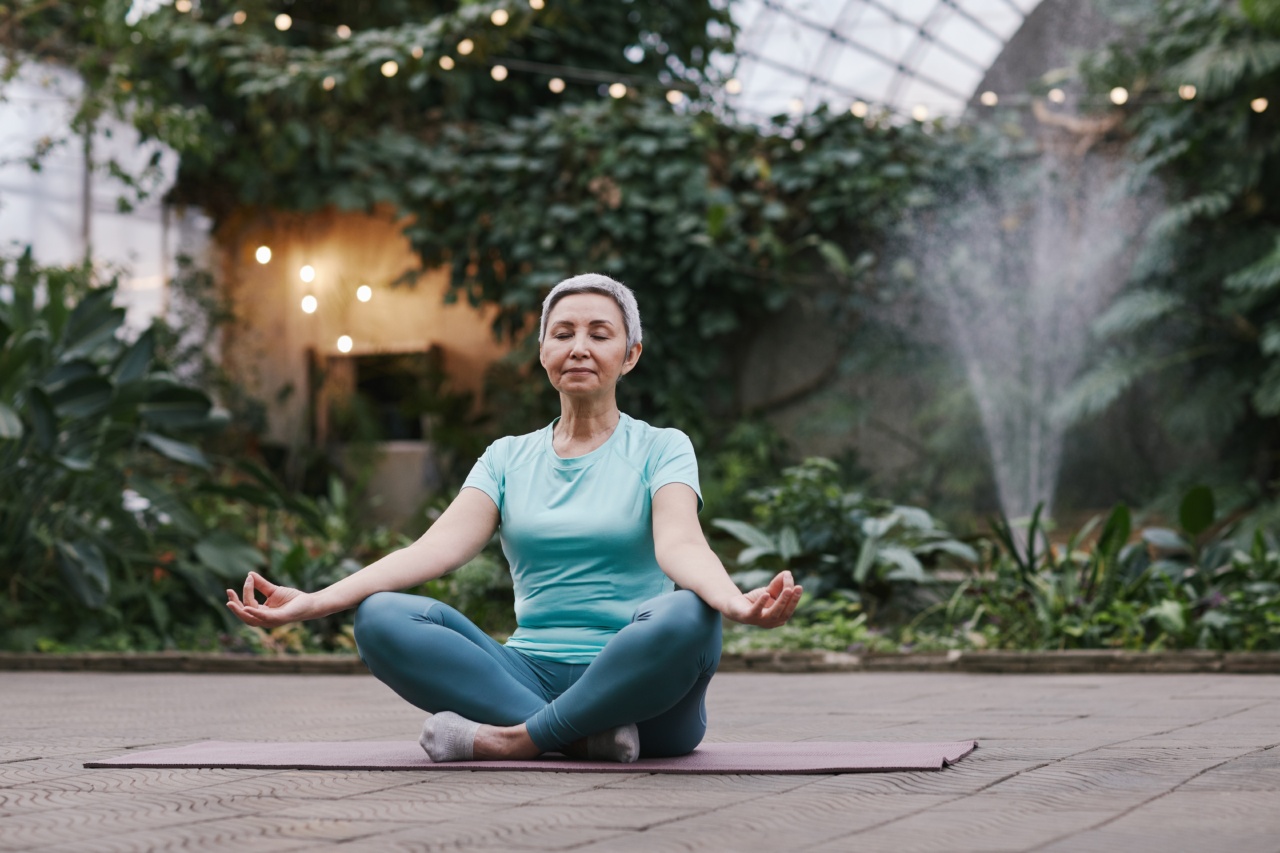Living a healthy lifestyle is crucial for overall well-being and longevity. While there are several aspects that contribute to a healthy lifestyle, exercise is undeniably the key factor.
Regular physical activity not only helps you maintain a healthy weight but also improves your cardiovascular health, boosts your mood, increases energy levels, and reduces the risk of chronic diseases. In this article, we will delve deeper into the numerous benefits of exercise and explore how it can positively impact your life.
1. Physical Health Benefits of Exercise
Engaging in regular physical activity offers a wide range of health benefits:.
a) Weight Management
Exercise plays a vital role in weight management by burning calories.
When combined with a balanced diet, it helps maintain a healthy body weight and prevents obesity, a significant risk factor for various diseases such as diabetes, heart disease, and certain types of cancer.
b) Improved Cardiovascular Health
Regular exercise strengthens your heart and improves blood circulation. It helps lower blood pressure, reduce cholesterol levels, and decreases the risk of heart diseases such as coronary artery disease, heart attacks, and strokes.
c) Increased Muscle Strength and Bone Density
Engaging in resistance training and weight-bearing exercises, such as lifting weights or doing push-ups, helps build muscle strength and increases bone density. This is particularly beneficial for preventing osteoporosis, especially in older adults.
d) Enhanced Respiratory Function
Aerobic exercises, such as running, swimming, or cycling, improve lung capacity and enhance respiratory function. Regular cardio workouts can strengthen the respiratory muscles and improve overall lung health.
e) Reduced Risk of Chronic Diseases
Regular physical activity significantly reduces the risk of chronic diseases, including type 2 diabetes, certain types of cancer (such as breast and colon cancer), and metabolic syndrome.
2. Mental and Emotional Well-being
Exercise not only benefits your physical health but also has a profound impact on your mental and emotional well-being:.
a) Mood Booster
Engaging in physical activities prompts the release of endorphins, the “feel-good” hormones. These hormones contribute to an improved mood and can help combat symptoms of depression and anxiety.
b) Stress Reduction
Regular exercise acts as a natural stress reliever by reducing the production of stress hormones, such as cortisol.
Physical activity also increases the production of serotonin and dopamine, neurotransmitters that promote feelings of relaxation and happiness.
c) Better Sleep Quality
Exercise can improve sleep quality by reducing insomnia and helping you fall asleep faster. However, it is advisable to avoid strenuous exercise close to bedtime, as it may have a stimulating effect on your body.
d) Enhanced Cognitive Function
Physical activity stimulates brain function and improves cognitive abilities. Regular exercise has been linked to enhanced memory, increased focus, and improved overall mental performance.
e) Reduced Risk of Mental Decline
Studies have shown that engaging in regular exercise can reduce the risk of age-related cognitive decline and neurodegenerative diseases such as Alzheimer’s disease.
3. Exercise and Longevity
Regular exercise has been widely recognized as a contributing factor to a longer and healthier life:.
a) Increased Life Expectancy
Research consistently indicates that individuals who lead an active lifestyle tend to have a longer life expectancy. Exercise helps prevent and manage chronic illnesses, reducing the risk of premature death.
b) Improved Quality of Life
Exercise not only adds years to your life but also adds life to your years. By improving physical health, mental well-being, and overall vitality, exercise enhances the quality of life.
c) Healthy Aging
Regular physical activity can slow down the aging process by preventing muscle loss, maintaining joint flexibility, and preserving bone density.
It also helps reduce the risk of age-related diseases, allowing individuals to live an active and independent life as they grow older.
4. Tips for Incorporating Exercise into Your Routine
Now that we understand the importance of exercise, here are some practical tips for incorporating physical activity into your daily routine:.
a) Find an Activity You Enjoy
Experiment with different types of exercises until you find an activity that you genuinely enjoy. Whether it’s swimming, dancing, hiking, or playing a team sport, if you enjoy it, you are more likely to stick with it.
b) Set Achievable Goals
Start with small, achievable goals and gradually increase the intensity and duration of your workouts. This approach will help you stay motivated and avoid burnout.
c) Make it a Habit
Consistency is key when it comes to exercise. Set aside specific times for physical activity, and treat it as an important appointment that you cannot miss.
d) Stay Active Throughout the Day
Apart from scheduled workouts, try to incorporate movement into your daily routine. Take the stairs instead of the elevator, go for short walks during breaks, or stand up and stretch regularly if you have a desk job.
e) Mix It Up
Aim for a combination of cardiovascular exercises, strength training, and flexibility exercises to ensure a well-rounded fitness routine. This will help target different muscle groups and promote overall fitness.
f) Stay Hydrated and Listen to Your Body
Stay hydrated before, during, and after exercise. It is important to listen to your body and rest when needed. Pushing yourself too hard without allowing for adequate recovery can lead to injuries and fatigue.
Conclusion
Incorporating exercise into your daily routine is essential for a healthy lifestyle. The physical, mental, and emotional benefits of regular physical activity are undeniable.
Exercise not only helps you maintain a healthy weight and reduce the risk of chronic diseases but also improves mood, enhances cognitive function, and promotes longevity. So, get moving and make exercise a lifelong habit!.































